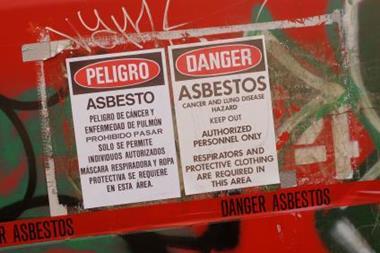The High Court delivered some clarity over who pays for asbestos-related claims
Employers and the victims of asbestos poisoning have received some well deserved legal clarity.
In a landmark decision Britain’s High Court decided that employer’s liability policies in force at the time of a claimant’s exposure to asbestos will pay out. That is a relief for some companies who would otherwise have had to meet potentially huge claims out of their own pockets.
The Court’s decision means that employees injured by exposure to asbestos many years ago can claim against the employers' historic insurers. That lifts the burden of liability from claims going back several decades into the hands of the insurers.
The insurers fighting this litigation were trying to change the basis of liability from the date of the exposure to the date of the onset of symptoms—usually many years after the victim had contact with hazardous asbestos.
The victims and their employers teamed up to battle the insurers over exactly what triggers a compensation claim.
Is it when the victim breaths in the asbestos fibres, when the symptoms manifest themselves or in fact when the disease takes hold? These details are very important because they decide who is responsible for the claim. Either it is the company itself or the insurer that offered cover when the trigger was pulled.
An earlier Court of Appeal decision created a grey area that enabled insurers to refuse to pay out on many asbestos-related cases. The 2006 Bolton case threw doubt over the appropriateness of the date of exposure as the trigger. Market practice before that ruling had been to pay out on policies that were in force at the time of a claimant’s exposure. For that reason many insurers were expecting this latest verdict and only hoping that they might be handed a get-out clause.
Unfortunately this doesn’t spell an end to all the confusion around asbestos liabilities.
Lawyers claimed the decision could have implications for liability under other types of policy—like general liability. And it’s not yet clear if it will be applied to other latent disease conditions, like those that could arise from nano-technology. The insurers could also decide to appeal the decision.
The Insurance Times called on the industry to Accept the asbestos verdict













No comments yet